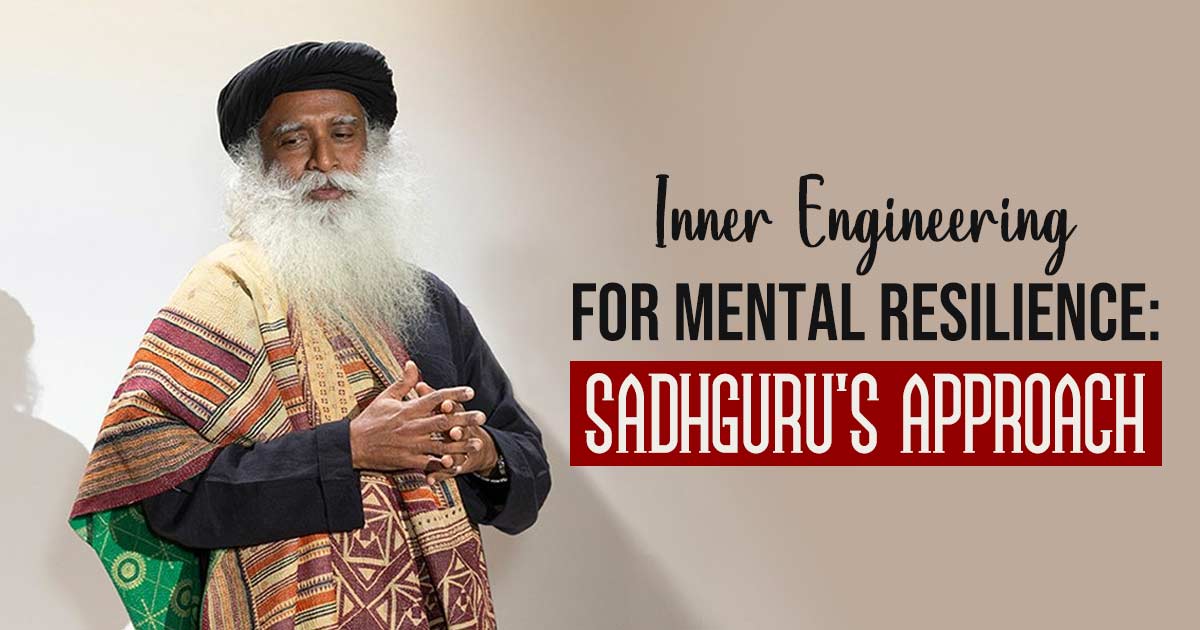Mental health issues have become a pervasive concern in today’s fast-paced and demanding world. The complexity of these issues often makes it challenging to pinpoint their exact causes. An influential spiritual leader and yogi, Sadhguru’s take on mental health offers unique perspectives on the factors that contribute to mental illness.
This essay aims to explore the insights of Sadhguru on mental illness, while integrating scientific research to provide a comprehensive understanding of what leads to mental health issues.
1. Stress And Modern Lifestyle
Sadhguru’s take on mental health points to the role of stress in causing mental health problems. He argues that our modern, high-paced lifestyles are a significant source of stress. The relentless pursuit of success, material wealth, and societal expectations can overwhelm individuals, leading to anxiety, depression, and other mental health issues. Scientifically, chronic stress has been linked to changes in brain structure and function, contributing to conditions like anxiety and depression.
2. Lack Of Inner Fulfillment
In Sadhguru’s take on mental health, he contends that many individuals suffer from mental health problems because they lack a sense of inner fulfillment. He suggests that people often seek happiness and contentment externally, through material possessions or achievements, rather than looking within themselves.
This perpetual external search can leave individuals feeling empty and unfulfilled, leading to mental health issues. Scientifically, this aligns with research indicating that a sense of purpose and inner contentment is essential for mental well-being.
3. Disconnect From Nature
Sadhguru advocates for a deeper connection with nature, claiming that our disconnection from the natural world contributes to mental health problems. In today’s urbanized environments, people spend more time indoors, away from the healing and calming effects of nature. Scientific studies support this notion, demonstrating that exposure to nature can reduce stress, anxiety, and symptoms of mental health disorders.
4. Lack Of Awareness And Self-realization
Sadhguru’s take on mental health emphasizes the importance of self-awareness and self-realization in maintaining mental health. He argues that many individuals are not in tune with their own thoughts and emotions, leading to internal conflicts and confusion.
This lack of self-awareness can result in a range of mental health issues. Psychological research supports the notion that self-awareness and self-realization are crucial for emotional well-being.
5. Unresolved Emotions And Trauma
Sadhguru’s take on mental health suggests that unresolved emotions and past trauma can be at the root of mental health problems. He believes that individuals often suppress their emotions or try to escape from them, which can lead to psychological distress. Scientifically, there is substantial evidence linking unresolved trauma and suppressed emotions to conditions like post-traumatic stress disorder (PTSD), depression, and anxiety.
6. Lack Of Physical Activity And Poor Nutrition
Sadhguru emphasizes the importance of physical health in maintaining mental well-being. He argues that a sedentary lifestyle and poor nutrition can contribute to mental health issues. Scientifically, physical activity has been shown to have a positive impact on mood and overall mental health. Additionally, a balanced diet rich in nutrients is essential for brain function and emotional stability.
7. Social Isolation And Loneliness
Sadhguru acknowledges the significance of social connections in mental health. He believes that social isolation and loneliness are major contributors to mental health problems, particularly in the age of digital communication, where genuine human connections may be lacking. Research has indeed linked social isolation and loneliness to various mental health issues, including depression and anxiety.
8. Lack Of Mindfulness And Meditation
Sadhguru advocates for the practice of mindfulness and meditation as tools for maintaining mental well-being. He suggests that these practices can help individuals gain control over their thoughts and emotions, reducing stress and promoting mental clarity. Scientific studies have shown that mindfulness and meditation can have positive effects on mental health, including reducing symptoms of anxiety and depression.
9. Societal Stigma And Lack Of Support
Sadhguru’s take on mental health highlights the societal stigma surrounding mental health as a significant barrier to seeking help. He argues that individuals often hesitate to reach out for support due to fear of judgment and discrimination. This stigma can prevent people from receiving the necessary treatment and exacerbate their mental health issues. Scientifically, there is ample evidence that stigma can hinder mental health treatment and support-seeking behaviors.
10. Environmental Factors
Sadhguru’s take on mental health also points to environmental factors such as pollution, noise, and overcrowding as contributors to mental health problems. He suggests that the quality of the environment in which people live can have a profound impact on their mental well-being. Research has indeed linked environmental factors to mental health, with studies showing that exposure to pollution and noise can increase stress levels and negatively affect mental health.
Mental health issues are complex and multifaceted, with various factors contributing to their development. The insights of Sadhguru on mental illness and mental health provide a holistic perspective that integrates the spiritual, emotional, and physical aspects of mental health.
While his teachings offer valuable insights, it’s essential to recognize that scientific research also plays a crucial role in understanding and addressing mental health issues. Combining the wisdom of Sadhguru on mental illness with scientific knowledge, we can better comprehend the interplay of factors leading to mental health problems.




























